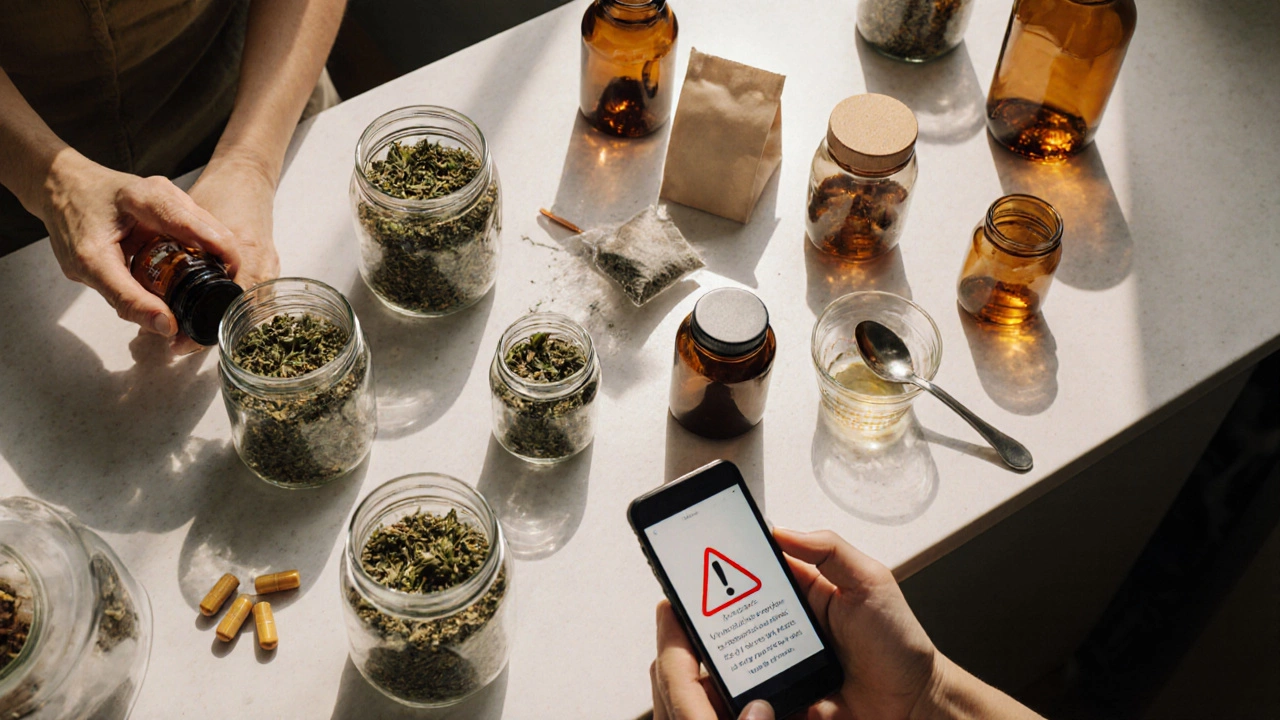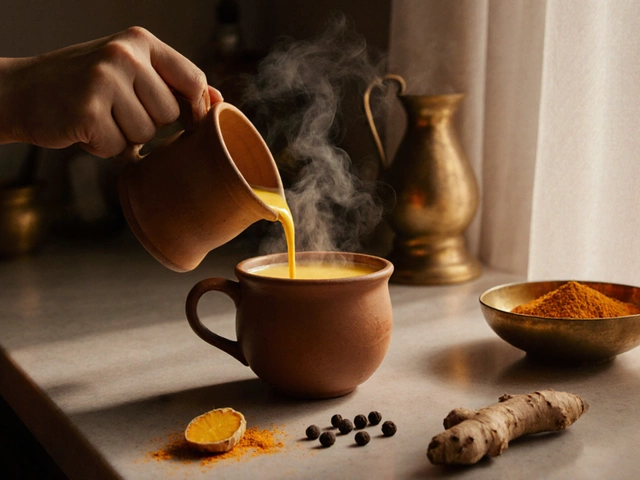Herb Interactions – What You Need to Know
When navigating the world of natural remedies, understanding herb interactions, the ways herbs combine with medicines, foods, or other herbs to affect the body. Also known as herbal‑drug interplay, it can turn a harmless tea into a safety concern. Herbal supplements, commercially prepared plant extracts marketed for health benefits often sit at the center of these mix‑ups because people assume “natural” equals “safe.” In reality, drug interactions, any change in a medication’s effect caused by another substance are a frequent outcome when herbs meet prescription drugs. Add kidney health, the organ’s role in filtering waste and drugs into the picture, and you see why certain herbs can strain the kidneys and trigger toxicity. Finally, Ayurvedic medicines, traditional Indian herbal formulas used for balance and healing bring another layer of complexity, as their potent blends may interact with modern pharmaceuticals. Recognizing these links helps you avoid hidden dangers and make smarter choices.
Why Knowing Herb Interactions Matters
First, herb interactions encompass drug interactions that can either boost or blunt a medication’s power. For example, St. John’s wort speeds up liver enzymes, causing many antidepressants to lose effectiveness, while ginkgo biloba can thin the blood and increase bleeding risk when paired with anticoagulants. Second, herb interactions require awareness of kidney health because the kidneys process most oral drugs. Herbs like licorice root or aristolochic acid contain compounds that can damage renal tissue, especially when taken alongside diuretics or NSAIDs. Third, the safety of herbal supplements hinges on proper sourcing and clear labeling; contamination with heavy metals or undisclosed pharmaceuticals turns a “natural” product into a hidden hazard. Fourth, Ayurvedic medicines often combine multiple herbs, making it tough to predict which component will interact with a prescription. Lastly, lifestyle factors such as diet, alcohol use, and age shape how your body reacts to these combinations, meaning what’s safe for a young adult might not be for an older patient with chronic kidney disease. By tying these entities together—herb interactions, drug interactions, kidney health, herbal supplements, and Ayurvedic practices—you create a mental map that catches problems before they surface.
Below you’ll find a curated set of articles that break down these topics in everyday language. Whether you’re looking for a quick guide on which herbs to avoid if you’re on blood thinners, want to spot red flags on supplement labels, or need to understand how Ayurvedic formulas might affect your existing medication plan, the posts in this collection have you covered. Dive in to get practical tips, real‑world examples, and clear steps to keep your natural health journey safe and effective.





